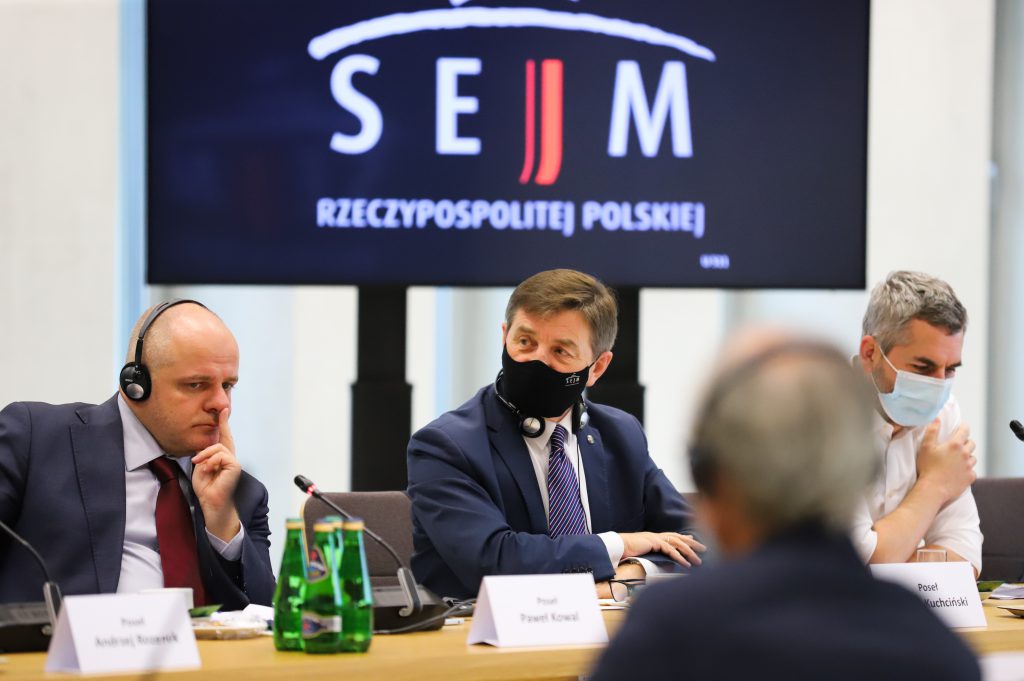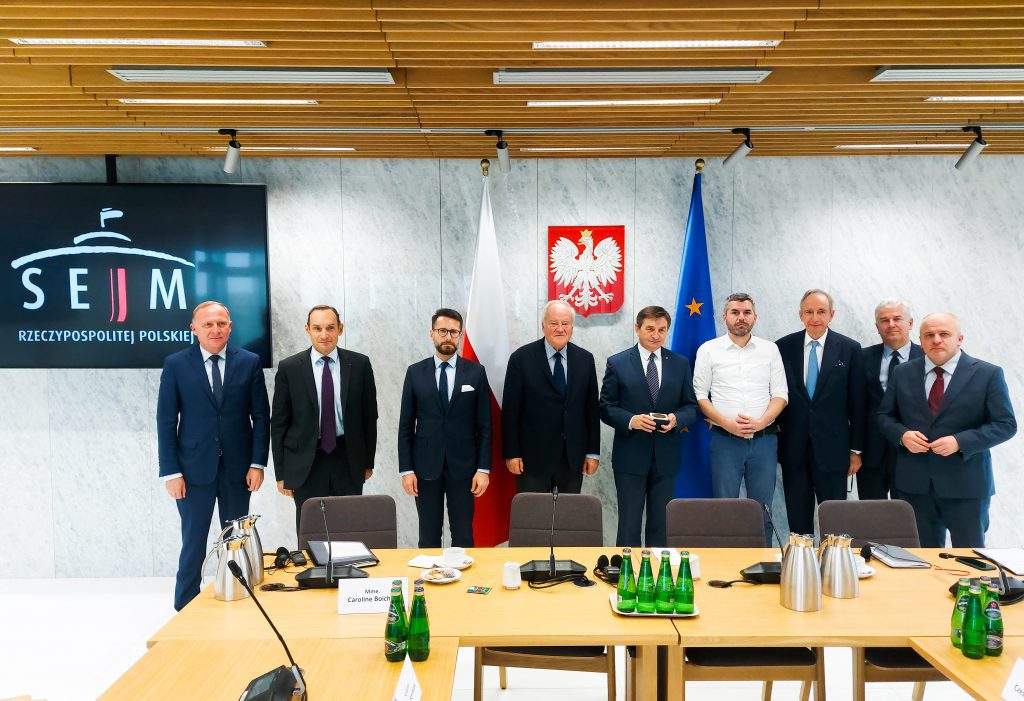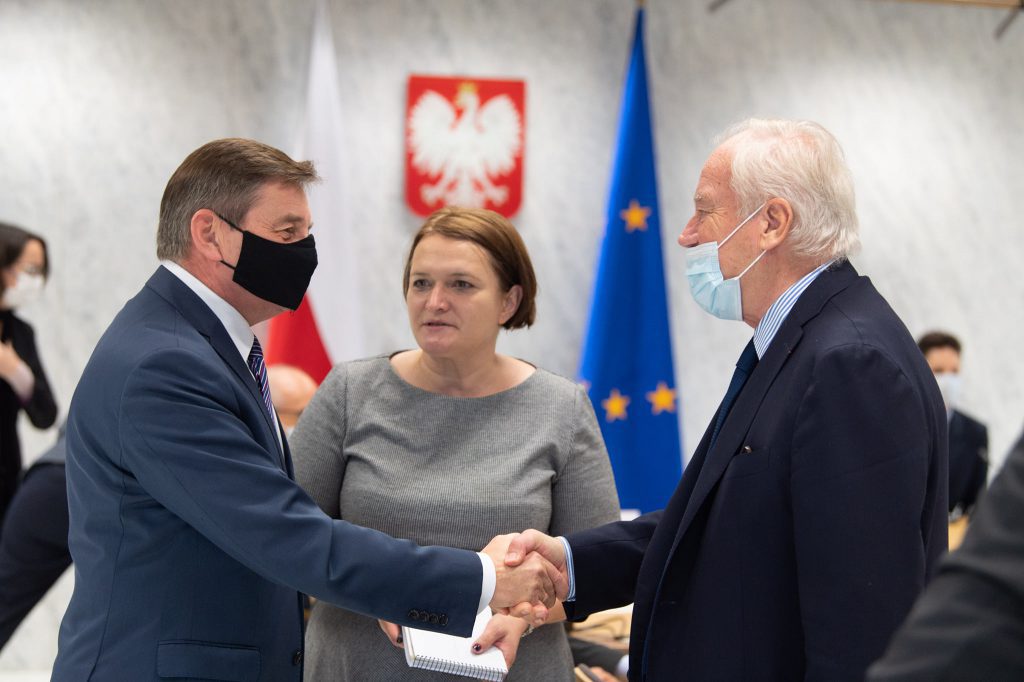The Chairman of the Commission Marek Kuchciński emphasized that the meeting fell on a special day for common military traditions. October 19 is the anniversary of the death of the Commander-in-Chief of the Polish Army and the only non-French Marshal of France whose name is engraved on the Arc de Triomphe in Paris - Prince Jozef Poniatowski, killed in the Battle of Leipzig in 1813, where the Polish Army covered the retreat of the French Army. - I recall this event to emphasize that loyalty to allies is an important part of the Polish military and national tradition," said Marek Kuchciński.
The Speaker argued that Poland is a strong supporter of the thesis of the indivisibility of European security, and having long experience in resisting Russian imperialism, we watch with concern Russian political and military expansion in Syria, Libya and Mali.
This fact confirms the multi-directional nature of the Russian threat, which should be fought in solidarity by all NATO and EU countries in all directions in which it occurs. In this context, we value the presence of the French contingent in the NATO battle group in Estonia, and previously in Lithuania.
The meeting also touched upon the current immigration crisis on the eastern flank of NATO and the EU, which according to the politician is the result of an organized operation of smuggling people from Asia and Africa. The President noted that they are used to break the borders of Poland, Lithuania and Latvia. It is an element of Russia's hybrid aggression with instrumental use of the Lukashenko regime, which is dependent on it. The purpose of the action is to destabilize the eastern border of the EU (to test the reaction of states and the behavior of public opinion of the attacked countries in the face of this type of threat).This test serves to change the plans for destabilizing operations that both dictatorships are preparing and will undertake against us in the future. - I assess the situation as serious and it will develop:
- as a challenge for the protection of the external borders of the Schengen area (border policing)
- and as a manifestation of growing Russian expansionism," said Marek Kuchciński.
Any sign of weakness and leniency increases the threat because it encourages the Kremlin to test the limits to which it can go in its expansionism.
Between 1991 and 2014, i.e. from the collapse of the USSR until the Russian invasion of Ukraine, Poland could afford to build an expeditionary army. It achieved successes in this regard alongside France in Congo (2006) and Chad (2008-2009), and alongside the US in Iraq and Afghanistan. Currently, however, due to the growing Russian threat, Poland has to focus on developing capabilities to defend its own territory and the territory of its neighbors - its NATO allies. Purchases of equipment for the Polish Army are therefore subordinated to this general objective.
Kuchciński pointed out that in every democracy there is a ruling camp and an opposition. However, the opposition in any democracy is not considered an enemy of the state, but only a competitor of the government. The same situation should exist at the EU level. Treating the opposition to the ideological ideas of the camp dominating in the EU today as the enemy of the EU is a misunderstanding.
- In Poland, we have centuries of experience of functioning within the EU - this is the Polish-Lithuanian union - and we know that excessive centralization and the attempt to unify the cultural model in all EU member states does not serve to strengthen it, but on the contrary, it threatens to stimulate centrifugal movements. And it weakens the integration process, rather than supporting it," said the President. - Poland's position is therefore one of scrupulous observance of the treaties and the principle of conferral - the EU has only those powers that the member states - the hosts of the integration process - have granted to it in the treaties, and only to the extent that they have granted them - he argued.
During the meeting, the issue of energy transition was also raised. The French side emphasized that the creation of nuclear power plants translates not only into less environmental pollution, but also into lower energy costs, faster development of the region and new jobs.
The politicians also raised the issue of supporting the Eastern Partnership countries in their EU accession processes. - We believe that its citizens must not be left alone - Kuchciński emphasized.
They also agreed on the need to reactivate the Weimar Triangle and strengthen relations at the level of national parliaments. A good starting point would be regular meetings of our countries' committees.





